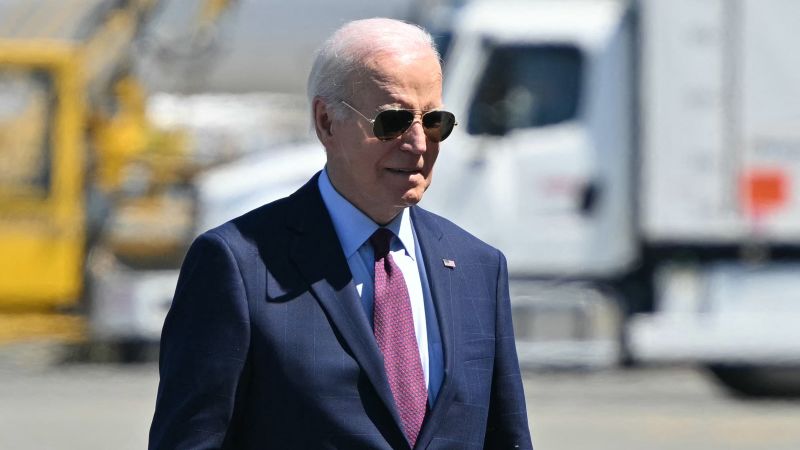In an effort to prioritize U.S. production and cripple China’s development of critical technologies, President Joe Biden is increasing tariffs on $18 billion worth of Chinese imports across various sectors essential to national security. The tariffs will apply to steel, aluminum, legacy semiconductors, electric vehicles, battery components, critical minerals, solar cells, cranes, and medical products, with rates ranging from 100% for electric vehicles to 25% for other sectors over the next two years. The decision was made following an evaluation of the effectiveness of the tariff program mandated by U.S. trade law.
The Biden administration’s decision to increase tariffs on Chinese imports is based on the need to counter China’s use of unfair trade practices to grow its economy at the expense of others, according to White House officials. This move also aligns with the administration’s policy priorities, including the transition to clean energy and the need for diversified production of critical goods and technologies. Electric vehicles imported from China will see their tariffs quadrupled from 27.5% to 100% to challenge China’s domestic manufacturers who benefit from aggressively low pricing and high tariffs on U.S. car imports.
Following in the footsteps of his predecessor, former President Donald Trump, who implemented tariffs on $300 billion worth of Chinese imports during his term, Biden is using tariffs as a tool to protect national security interests and counter China’s unfair trade practices. The administration has redrawn the parameters of the tariff program to reflect their policy priorities, particularly the transition to clean energy, and to ensure a level playing field in global trade. The White House has also emphasized the need for resilient supply chains and clean technology production in the face of growing global demand.
The White House has refrained from speculating on how China may respond to the increased tariffs, though they have indicated that parallel investigations by allies in Europe, Brazil, and Turkey support their position. Treasury Secretary Janet Yellen and Secretary of State Antony Blinken raised concerns about China’s excessive production rates during formal visits in April, underscoring the need for a fair and balanced global trade environment. The decision to increase tariffs was initially planned for April but was postponed to accommodate diplomatic visits to China, reflecting the administration’s commitment to engaging in dialogue with Beijing.
President Biden’s call for a tripling of tariffs on certain steel and aluminum products imported from China, along with an investigation into unfair shipbuilding practices, has prompted backlash from the Chinese government. The Ministry of Commerce accused the U.S. of making false accusations and engaging in wrong practices, signaling potential tensions in the trade relationship between the two countries. Biden’s speech at the United Steelworkers headquarters in Pittsburgh highlighted the need to address China’s state-funded steel production practices, which unfairly manipulate global prices and hinder competition. The administration’s efforts to challenge China’s trade practices have the potential to impact critical industries and shape the future of global trade relations.


